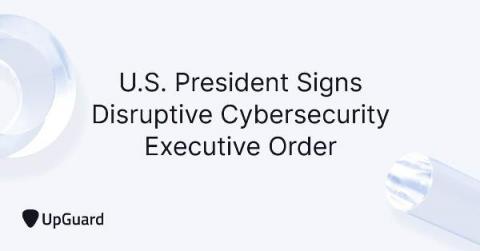How to be Compliant with Biden's Cybersecurity Executive Order
In an ambitious leap towards improving the Nation’s security posture, President Joe Biden has instituted an Executive Order to improve cyber threat information sharing between the U.S Government and the Private Sector. The goal is to align cybersecurity initiatives and minimize future threats to national security by modernizing cybersecurity defenses in the United States.






